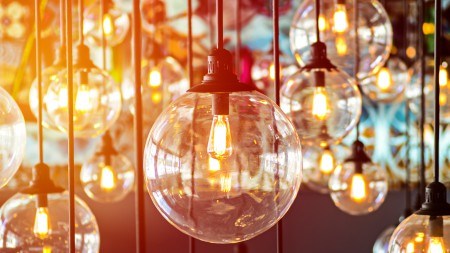Being at home during lockdown
With families being at home all day now during the Covid-19 lockdown, many people are seeing their electricity usage rocket, and are urgently looking for ways to cut down on this expense. Here's how to reduce your electricity consumption.
One of the easiest is to eliminate the “stealth” consumption of power by appliances and devices that don’t actually switch off when not in use but remain on standby, says Berry Everitt, CEO of the Chas Everitt International property group.
“The worst culprits are appliances with remote controls like TVs, sound systems and garage door openers; devices with a continuous digital display like DSTV decoders, microwaves and clock radios; chargers for cellphones, tablets and laptops and items with external power supplies like printers.”
In fact, energy experts have calculated that the “phantom loads” of power that are invisibly consumed by these devices can account for as much as 15% of your household electricity usage, costing you thousands of rands a year for no direct benefit, he notes.
“But the good news is that you can easily do something about it, starting by unplugging any chargers you aren’t using - and any seldom-used appliance - from their wall sockets.
“Second, plug all the components of your computer or home entertainment system into one multiplug (obtainable from most supermarkets and hardware shops) so you can turn off the whole lot with one switch.
“And third, don’t forget to unplug your all your electronic devices whenever you leave the house in future or are not using them for any length of time. This will have the added benefit of protecting them from lightning strikes.”
Everitt says additional simple tips for saving energy at home and cutting your electricity bill include the following:
Turn off your geyser: except for the couple of hours a day that it actually takes to heat up the water. And invest in a geyser “blanket” to keep the water hot for longer. Heating water accounts for up to 40% of most household electricity bills, so these actions should result in quite significant savings;
Air-conditioners consume a lot of electricity too: so don’t use them unless you absolutely must. Try to cool rooms naturally by opening windows and doors early in the morning or in the evening, and rather use roof or mechanical fans to create a “breeze”;
Invest in energy-efficient appliances. Fridges and freezers consume energy non-stop and cooking and washing can also use a lot of electricity, especially if you have a large family. Consider making more use of your microwave or switching to gas, and wash clothes on a cold-water cycle as much as possible;
Whenever possible, air-dry your clothes in the sunshine rather than using a dryer;
Boil the kettle less often by filling a thermos flask with boiling water in the morning and using it to make your tea or coffee during the day; and
Just turn off the lights in any room that is not in use.

